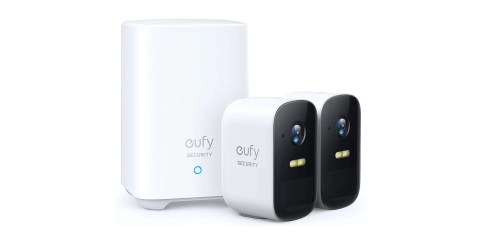
iCloud is a vital aspect of the Apple experience. When you get a new iPhone, iPad, Mac, or Apple TV, signing into iCloud is one of the first steps. iCloud is now a crucial part of managing documents, photos, and videos as well. iCloud isn’t perfect, though. Last year, we saw the announcement and delay of iCloud folder sharing. This feature is something Google Drive and Dropbox have had for years. There are still random bugs with contact syncing if the person’s picture is too large. I’ve been thinking about how I want to see iCloud evolve, so I’ve come up with my iCloud 2020 wishlist.
Folder sharing
This feature is a no brainer to be at the top of the list. We know Apple is working on it, and it could be added back to macOS, iOS, and iPadOS at any time. For a lot of collaboration use cases, folder sharing is a crucial feature. Users don’t want to be emailed shared links back and forth. Apple needs to implement this feature in a way that just works. If it comes out of the gate with syncing problems, Dropbox, Google Drive, OneDrive, or Box will be the solutions that will benefit. Users that need folder sharing need be able to do in early 2020. As I previously mentioned, this feature was in the betas of iOS 13, but was pulled as the public release came closer.
The iCloud Drive system was overhauled during the iOS 13 beta period, adding features like folder sharing and the ability to pin files to stay downloaded. However, many beta testers reported issues with data loss and data corruption. Apple reverted the iCloud Drive daemon in the last few seeds before iOS 13 went to Golden Master, as part of a wider push to stabilize the OS in time for the September launch.
Family Sharing for iCloud Photos

I think I’ve written about this feature every year since iCloud Photos came out. It’s the number one item on my iCloud wishlist. To sum it up, here’s the problem for families. If I take a photo of my children on my iPhone using my iCloud account. The only way for my wife to get it is if I add it to a shared album, AirDrop it to her, or send it via iMessage. While all of those work for the one photo, there is no way for families to share their entire libraries. Back in March, I wrote about some possible solutions
Sign into a Different iCloud Photo Account for Family Sharing Accounts
One little known feature of iOS is that you can use a different App Store account than your normal iCloud login. I take advantage of this because my main app purchase history is an old Gmail account that I’ve had before iCloud was even a product. This feature is actually hooked into family sharing as I am sharing purchases from this account to the rest of my family. Apple could allow users who want a single library to sign into a different iCloud Photo library than their main iCloud account. In my situation, I’d simply have my wife logged into my iCloud account for photos. While she might “junk” up my library with random photos, I could easily delete them to keep our family iCloud photo library cleaned up.
Sharing From Face Scanning
Another idea for solving these iCloud Photos family sharing problem would be to designate faces that I want from my wife’s library I want to save back automatically. Doing this would mean syncing face information across Family Sharing. How I envision this working would be that I could say I want any photos of these 5 people (my family) automatically added to my library over iCloud. The flaw with this solution is that I’d miss out on any other photos, and I’d also have to wait for her iPhone to do the face scanning (happens when iPhone is on the charger and Wi-Fi).
Read Only Access to iCloud Photos for Families
Apple could also allow members of a family to have “read-only” access to the other libraries connected with Family Sharing. Doing this would also allow parents to keep an eye on what their kids are doing. If this was enabled, I could go into my wife’s iCloud Photo library and copy anything she’s taken that I want to be saved back to my library. She could do the same thing if she wanted something I had taken to share on Instagram or send off to be printed. Of all the methods I’ve come up with for how Apple could enable families to share iCloud Photos, this is probably my favorite option. It gives me control over what’s in my library, and it allows me to do it from iOS.
This problem gets worse by the year. My solution in the short term is to let my wife’s photos upload to my Dropbox account automatically. I then add them to Photos on the Mac. Once they sync to iCloud, Google Photos uploads them on my iPhone. She accesses our library from Google Photos on her phone using my account. If you are using Google Photos as your primary photo management platform, it offers robust sharing options that put iCloud to shame.
Error Console
I hope I will never need this, but I’d like to be able to view error logs for iCloud services on my devices. If a contact doesn’t sync to my iPhone, it will help me understand why things aren’t working properly. One of my complaints about Apple products is how they fail. Apple isn’t one to display several error messages when things don’t go well. Letting users see why things have failed is a better solution than them not having any idea. For users who have seen a lot of syncing issues over the years, a robust error console is likely on the top of their iCloud wishlist.
iCloud Menu Bar item
One of the aspects of Dropbox I’ve always loved is the Menu Bar icon. It shows what Dropbox is doing when files are syncing and provides easy access. As iCloud has spread to document and desktop syncing, I want to see when files are downloading, uploading, etc. A Menu Bar icon is a perfect way to accomplish this feature. Right now, each iCloud enabled app shows its syncing dialog box (iCloud Photos, Calendars, etc.). An iCloud Menu Bar icon would be great for Apple’s apps and services that sync with iCloud.
Wrap-up on 2020 iCloud wishlist
As I wrote this, I realized how far iCloud has come. For Apple, it’s about tightening up some loose ends and going after some high hanging fruit. What is on your 2020 iCloud wishlist? Let me know in the comments below.
FTC: We use income earning auto affiliate links. More.







Comments